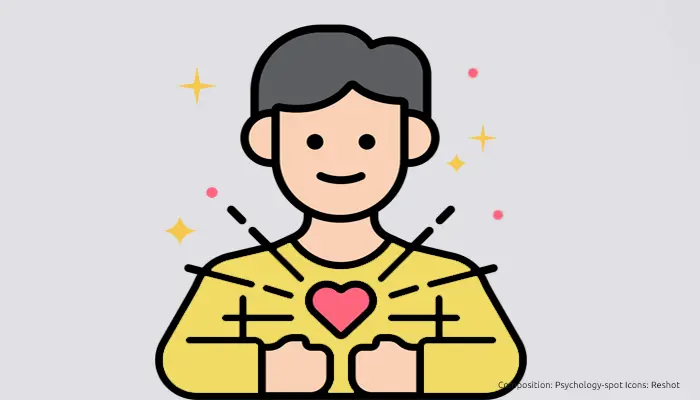
Taking care of yourself has become a kind of social commandment or personal mantra. However, taking care of yourself is not drinking detox shakes and eating grilled or steamed vegetables. Nor is it pounding your body in the gym or running to exhaustion to stay in shape. Not practicing yoga to relax and then return to the chaotic life of always. Or give yourself a massage to release the tensions that will build up again next week. Taking care of yourself goes far beyond those actions.
What does it mean to take care of yourself?
Taking care of ourselves is not dedicating the time we have left over, those few minutes left in a day crammed with tasks, but should become our priority. It is not doing something healthy and relaxing when we feel bad or we are exhausted, but rather avoiding internal and external pressures that lead us to hitting bottom emotionally.
Taking care of yourself therefore begins with a personal commitment for life. That commitment does not imply forcing us to do physical activity certain hours a week, follow a healthy diet in which every calorie is counted, or relax on the weekend to replace part of the energy that we have wasted during the week.
It implies respecting ourselves. Respect our rhythms. That of our body and that of our mind. Be aware that sometimes we can not do everything and nothing happens. It is committing ourselves to personal care and our mental balance, but not as an imposed obligation but as a true show of self-love.
Taking care of yourself involves structuring our life in a way that does not provoke that urgent need to take a break because we are on the verge of collapse, or to disconnect from the world because we can no longer cope with it. So we can take a bath, have a tea or practice meditation as preventive activities, not curative.
Taking care of yourself means dealing with problems rather than letting them accumulate until their weight ends up crushing us. It means dealing with what causes us anxiety and what worries us, facing our fears and letting go of what hurts us before those pressures throw us off balance.
Taking care of yourself means putting limits on toxic people. Be willing to disappoint some people and say goodbye to others. Say “no” when we can’t or just don’t want to do something. Allowing ourselves to be who we are, instead of exhausting ourselves trying to please everyone all the time.
Taking care of yourself means accepting yourself from the prism of compassion. Be proud of our lights, but also embrace our shadows. Accept our failures and limitations without feeling that we are less for it. It is forgiving us our mistakes. But also commit to reaching our best version.
Taking care of yourself is letting go of everything that we cannot change. It is not living clinging to the past and freeing ourselves from the guilt that only adds a useless weight to our existence. It is saying goodbye to regrets and welcoming everything that is about to happen.
Taking care of yourself also means forgetting about some of our goals in order to live more serenely. It is realizing that we will not be able to achieve certain things, and learning to live with it without problems. It is accepting that we change and that things change – for better or for worse.
The 3 red flags that indicate that we are not taking care of ourselves enough
1. We need to rest from our life. If we often feel like we need a break from our own life, we are probably not taking sufficient care of ourselves. If our lifestyle wears us down and continually pushes us to the limit, we need to change something before it’s too late.
2. We feel like life goes by too fast. When we begin to feel that life is passing too fast, we need to pause to reflect. If each day turns into a “groundhog day” (movie) and we have lost the ability to enjoy the small pleasures of life, it is a sign that we are too focused on our duties and we are neglecting ourselves.
3. We have lost the meaning of life. Taking care of yourself, at heart, consists of choosing a life that fulfills us. On the other hand, if we start looking at the future without illusion and feel that nothing we do makes sense, it is likely that we have strayed too far from our passions and have lost contact with ourselves.
We must bear in mind that self-care does not go through following health trends or listening to the advice of a guru to solve our psychological chaos, but by listening to ourselves. We need to reconnect with ourselves to know what our body and spirit need. Only then can we live the life we want, a life that we really enjoy, that is meaningful and is a true reflection of ourselves.
Source:
Strauss, I. (2021) What It Really Means to Take Care of Yourself. In: Psychology Today.



